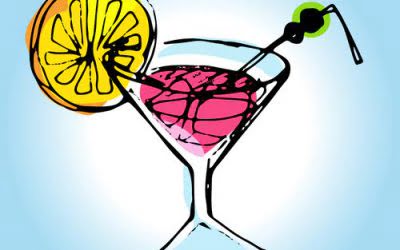An allergy or intolerance to alcohol is not always responsible for symptoms occurring after drinking alcohol. An allergic reaction might not occur the first time a person encounters an allergen. However, they can come on suddenly, and a person could develop an alcohol allergy at any point in their life.

Alcohol
Alcohol can exacerbate symptoms, and it can cause an allergic reaction in some cases. Alcohol has been shown to increase the production of histamine, a protein that causes inflammation. If you have alcohol sneezing an allergy to alcohol, you should avoid drinking it if you are allergic to it. For mild reactions, antihistamines may help, but consult a healthcare professional for proper guidance.

Allergies or Food Sensitivities
- Alcohol intolerance occurs when your body doesn’t have the proper enzymes to break down (metabolize) the toxins in alcohol.
- Beer allergies are uncommon, but people who are allergic to ingredients like barley, hops, or yeast may have a higher risk.
- If you’ve ever experienced anaphylaxis after drinking beer, it’s important that you determine which ingredient caused it so you can avoid it all together.
- Red wine should be consumed in moderation – no more than one glass per day and avoid eating on an empty stomach.
If you experience any symptoms beyond sneezing after consuming chocolate, it’s essential to consult a doctor to rule out a possible allergy. “They may also be accompanied by a red rash, swelling to the eyes, lips, face, breathing difficulties, stomach upset, feeling dizzy or faint due to low blood pressure,” she adds. “Allergic conditions may be genetic but, can happen in Twelve-step program people with no family history too.”
An Allergic Reaction
- It also provides practical strategies for managing or avoiding these unpleasant reactions.
- A Cleveland doctor provided one case report on the condition, which is a rare laboratory study.
- If you experience these symptoms after drinking alcohol, you must see a doctor as you may need to be treated for an allergy.
- The time of day may play a role, especially if the photic sneeze reflex is involved.
- The build-up of histamines can then trigger the allergy-like symptoms when certain foods or drinks, such as alcohol, are consumed.
Some people find that nasal saline rinses, steam inhalation, https://ecosoberhouse.com/ and consuming foods rich in vitamin C can help soothe irritated nasal passages and reduce inflammation. However, these remedies are not a substitute for medical advice and should be used in conjunction with guidance from a healthcare professional. Many people report that red wine causes the most noticeable nasal congestion, even in those without an alcohol allergy or alcohol intolerance. It’s worth asking if you have an alcohol allergy if you’re having difficulty drinking alcohol or if your symptoms worsen after drinking.
- The occurrence of the photic sneeze reflex and sensitivity to chocolate triggers can vary widely among individuals, regardless of gender.
- Understanding the multifaceted nature of this reaction requires considering several potential culprits.
- This is why people who drink alcohol at bedtime (especially in excess) may fall asleep quickly, but they are also more likely to experience fatigue and insomnia in the long run.
If you’ve realised that your body is suddenly intolerant to alcohol, don’t worry—there are steps you can take to manage it and still enjoy your social life. Understanding these differences can help you pinpoint the cause of your symptoms and get the most appropriate medical attention if needed. If you’re experiencing similar changes after starting a new medication, it might be time to have a chat with your doctor or pharmacist. There is no evidence suggesting that age or gender has a significant influence on alcohol-induced sneezing. The FHE Health team is committed to providing accurate information that adheres to the highest standards of writing.

